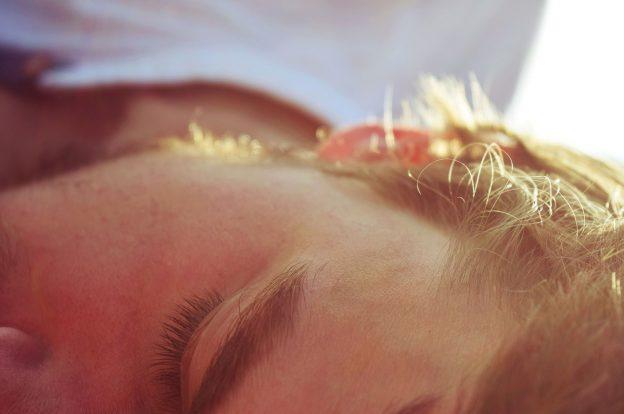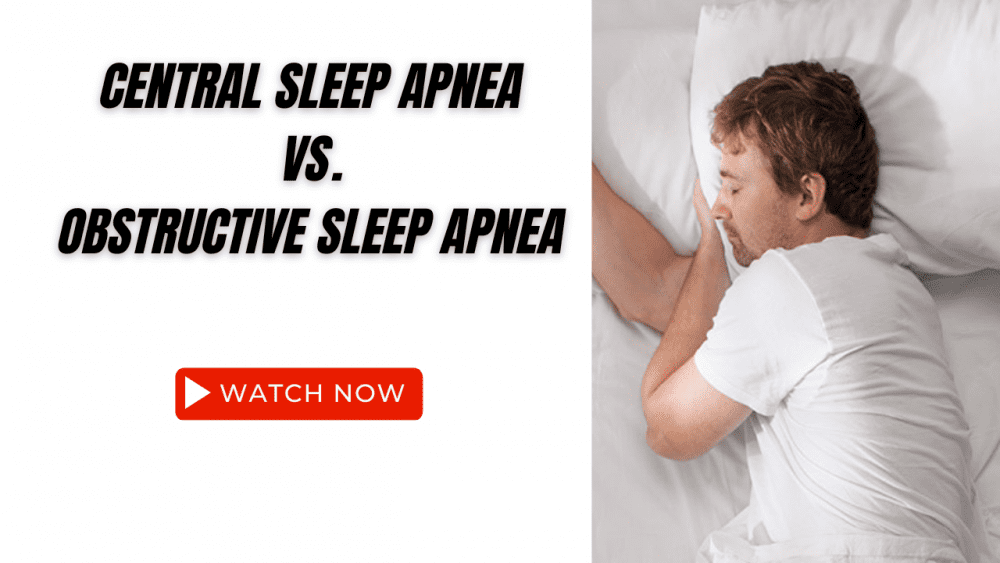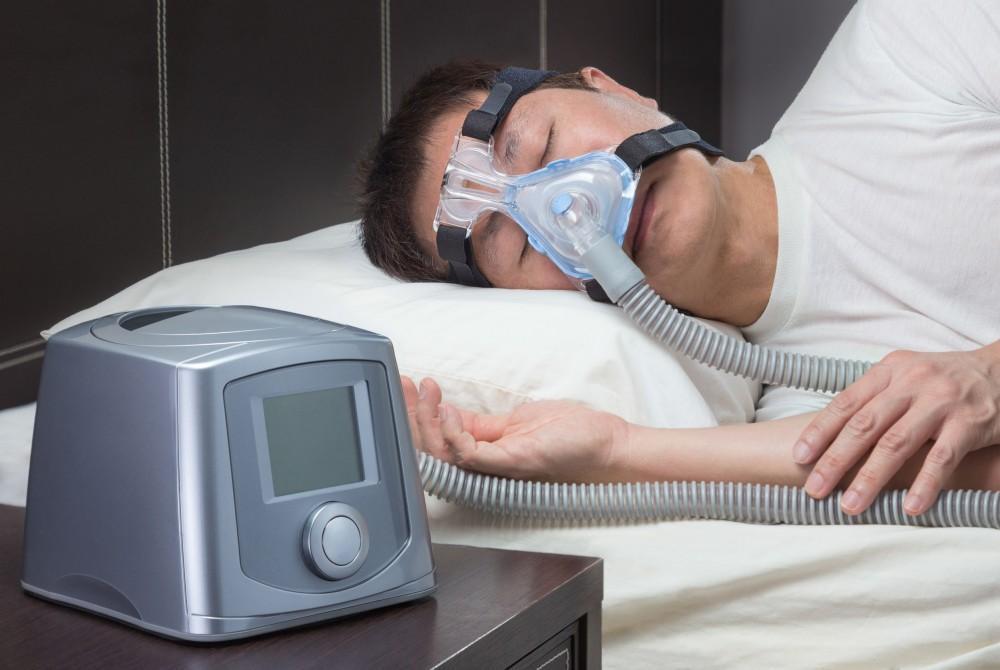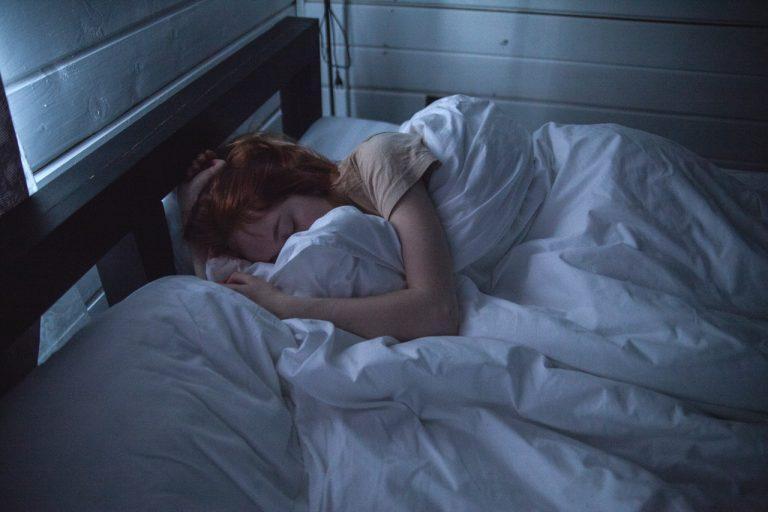
Sleep Apnea: Causes, Effects and Treatment Options

One of the first indications that you may have sleep apnea is if you snore loudly when you sleep. If you stop breathing abruptly and start breathing again during the night, it is a serious indication that you have this disorder.
Whether you have obstructive or central can only be determined and diagnose by a sleep doctor specializing in sleep disorders.
Types of Sleep Apnea
The two primary types and causes are:
Obstructive: This type is the most common. Throat muscles relax as you sleep and block the airway, causing you to stop breathing. As your body struggles to breathe again, you may gasp or choke for air. Loud snoring is one indication that you have the obstructive type.
Central: The brain is a mystery and sometimes it misfires, failing to send signals to the muscles controlling your breathing.
Complex Syndrome: Patients experiencing a combination of both obstructive and central conditions have treatment-emergent central sleep apnea. This occurs when a patient using CPAP also experiences central apnea or hypopneas while using the machine.
What are the Primary Symptoms?
The main symptoms of this sleep disorder are common regardless of the type you have. The only way to properly identify and treat the specific disorder is by conducting a sleep study.
The primary indications that you may have either obstructive or central include:
- Loud snoring
- Stop breathing
- Gasping or choking for air while you’re asleep
- Waking up with a dry mouth
- Headaches when you get up in the morning
- Insomnia or trouble getting to and staying asleep
- Hypersomnia or extreme sleepiness during the day
- Problems with concentration or attention difficulties
- Irritability
Although loud snoring is one of the main indications of this condition, many people who have this sleep disorder do not snore at all. However, if you experience any or all of the other indications, it’s best that you consult with your doctor since this disorder is a serious medical condition with adverse affects if left untreated.
Untreated Apnea May Result in Critical Health Issues
Don’t ignore your symptoms. There are serious complications that will affect your daily life if the disorder goes untreated.
Excessive fatigue. Waking up multiple times during the night makes it impossible to get the required amount of restorative sleep, which can result in excessive fatigue during the day. Fatigue leads to a lack of concentration or worse, falling asleep while driving or while at work.
Irritability is another result of fatigue, which can cause behavior problems, problems at work, or poor school performance in children who have this condition.
Heart conditions and high blood pressure. Apnea causes your blood oxygen levels to drop suddenly, leading to increased blood pressure, which puts a strain on your heart. Consequently, untreated, it puts you at higher risk for hypertension.
Other conditions and complications can develop from untreated sleep apnea such as diabetes, metabolic syndrome, liver disorders, and problems with surgeries or medications.
A sleep study helps doctors determine the type of apnea you have and the best course of treatment for you.
A Sleep Doctor is a Specialist in Sleep Disorders
Your primary care physician should refer you to a sleep doctor if you have many of the symptoms. These specialists are Board Certified in the specific area of sleep medicine, although many of these specialists have other areas of specialty as well.
A sleep doctor might also be a specialist in neurology, pulmonology, otolaryngology, or cardiology since apnea also affects each of these specific areas. A specialist will set up a sleep study for you in a sleep clinic or lab to make the proper diagnoses of your condition.
Benefits of Sleep Studies
Once you discuss your symptoms with a sleep doctor, if there is a high probability that you do have this condition, you will need to have a sleep study or polysomnogram, a procedure conducted in a sleep study clinic while you are asleep.
A good sleep clinic or sleep lab has comfortable private bedrooms with a nightstand for the CPAP machine and a TV if you need it to help you fall asleep.
This pain-free and non-invasive procedure records a variety of functions during sleep including brain wave activity, muscle tone and movements, heart rate, and eye movement. Preparation for the study involves placing electrodes on your head, legs and chest. The electrodes connect to a monitor that reads and records the data while you sleep.
Once the doctor reads the data, he can prescribe the proper course of treatment.
How is Sleep Apnea Treated?
The most common and most often prescribed is a CPAP or Continuous Positive Airway Pressure machine. The device includes a nasal or full-face mask connected to the machine by a hose.
The machine blows air through the hose to the mask to help keep the patient’s airway open during sleep. CPAP is actually one of the most effective forms of treatment, provided the patient uses it correctly, which means wearing it every time you go to sleep.
CPAP and Bi-PAP Machines
A BiPAP or Bilevel Positive Airway Pressure machine works exactly the same way as a CPAP except the airflow levels differ between inhaling and exhaling. Patients with very severe sleep apnea often use BiPAP to help maintain constant use as recommended.
Surgery to Correct Sleep Apnea
A surgical procedure is not the first treatment option for most patients, although it is a feasible option for some who simply cannot adapt to CPAP or BiPAP therapy. However, surgical options vary by individual and the severity of their obstruction that causes the apnea.
For patients who are not good candidates for surgery, it is imperative that they try a variety of masks until they find one that works for them.
The Numerous Benefits of Treatment
You should never leave sleep apnea untreated. When you comply with the doctor’s choice of treatment, you reduce your risks of any or all of the following health issues:
Heart Disease: Sleep apnea links to a variety of heart problems since it causes you to stop breathing frequently at night. These interruptions in breathing adversely affect both your blood pressure and blood oxygen levels, causing excessive strain on your heart.
Stroke: People who go untreated are far more prone to having a stroke.
Diabetes: Proper treatment of this sleep disorder improves your chances of avoiding diabetes.
Again, sleep apnea is a very serious medical condition that adversely affects nearly every part of your life if left untreated. If you suspect that you may have this disorder, call a professional sleep doctor right away to discuss your issues so you can lead a healthier, more productive life.
The Dallas Center For Sleep Disorders
The Dallas Center for Sleep Disorders was founded in 2006 to help people affected by snoring, sleep problems, or daytime fatigue get the best Sleep Health treatment available, tailored to their individual needs. Since then, the Dallas Center for Sleep Disorders has expanded its locations and options to better serve our clients in a more convenient and supportive way. Along the way, we have shortened our name to simply Dallas Sleep. At Dallas Sleep, our #1 philosophy is to serve our clients and to present you with the best treatment options available. We are here to meet your needs, as it specifically relates to your Sleep Health. Therefore, we will never push an agenda on you in any way. Ultimately, you call the shots.
We carefully and thoughtfully evaluate our patients before creating a treatment plan that is easy to understand. We are skilled at diagnosing and treating all types of sleep disorders, including snoring, insomnia, sleep apnea, chronic fatigue, excessive daytime sleepiness, restless legs syndrome, sleep walking, night terrors, and narcolepsy.
Research and clinical experience have proven that sleep disorders contribute to an increased risk of attention deficit disorders (in both children and adults), hypertension, obesity/overweight, type 2 diabetes, cardiac arrhythmias (AFib), stroke, depression, anxiety, dementia, erectile dysfunction (ED), low testosterone levels (low T) and decreased libido. The good news is that most sleep disorders, when properly diagnosed, can be successfully treated or managed.
You Might Also Enjoy...


Dr. Kakar Products

Central apnea vs. Obstructive sleep apnea

Warning to Patients about Ozone Cleaners

Ways to Help You Keep Hope Alive


